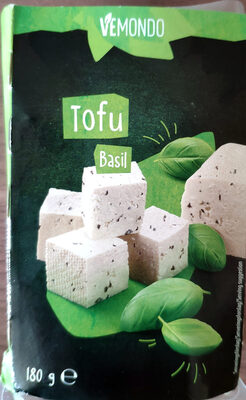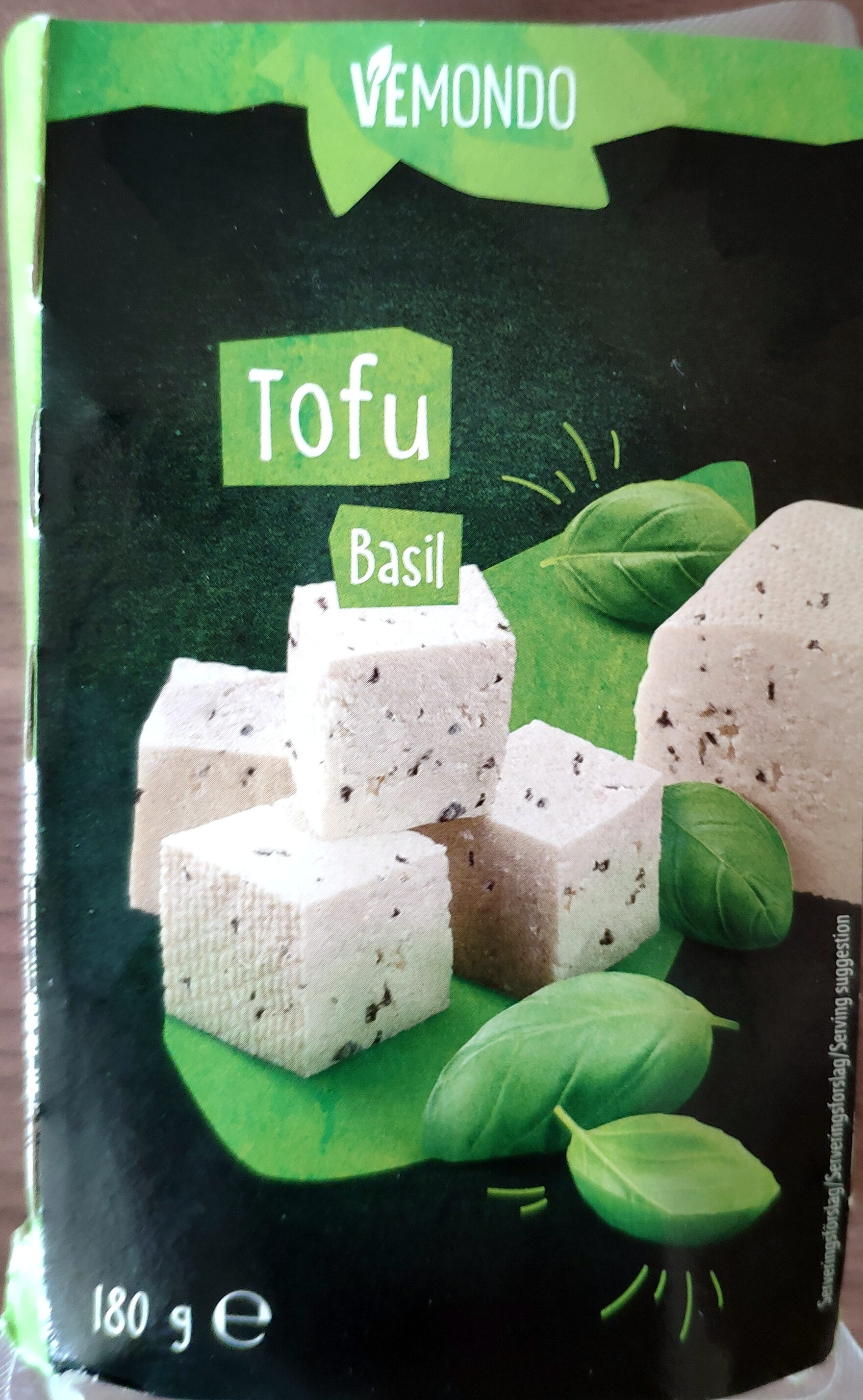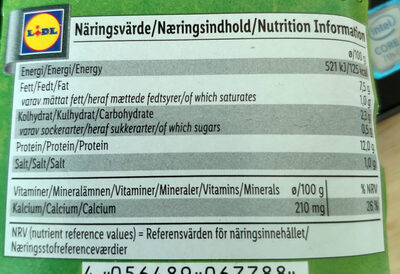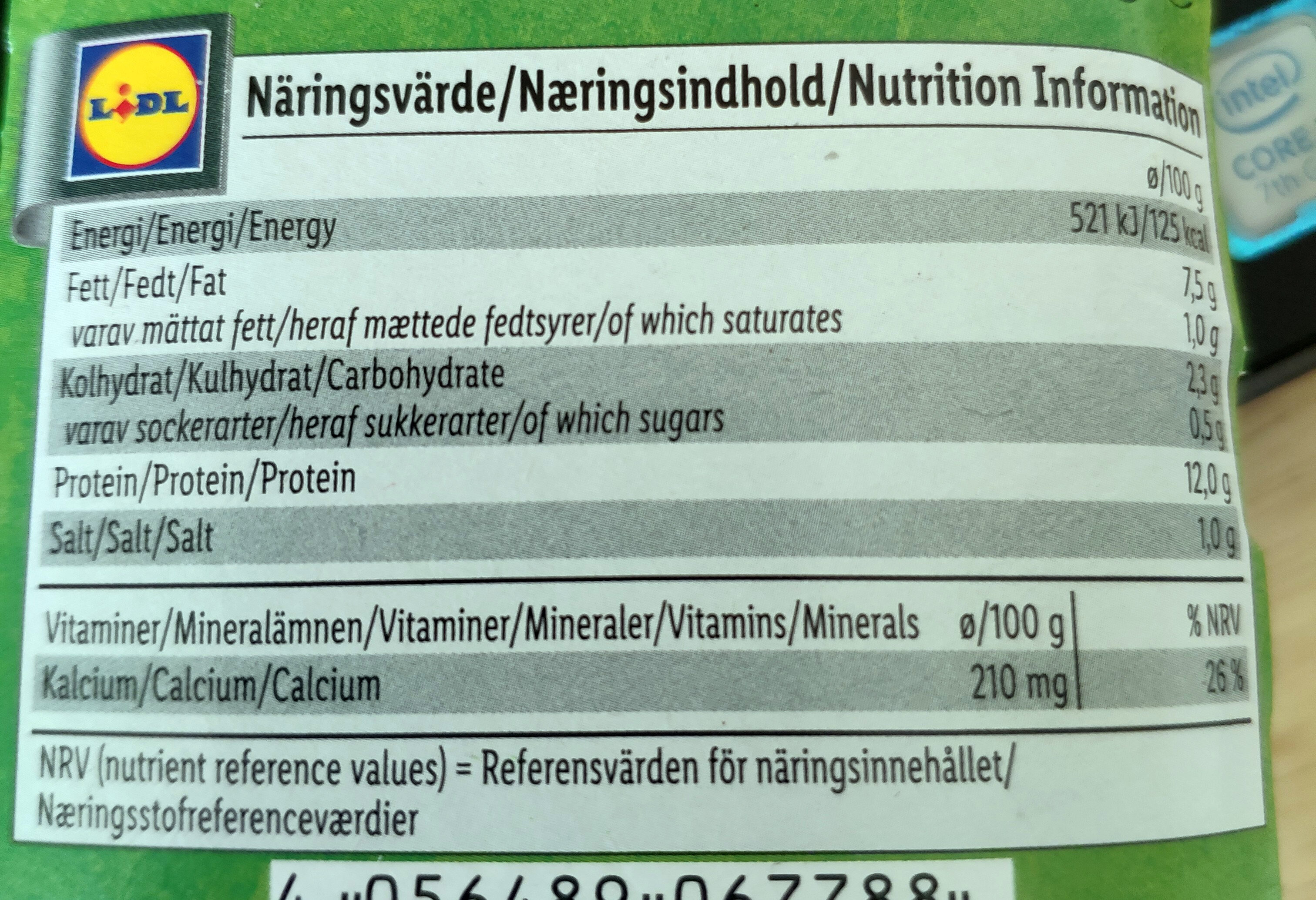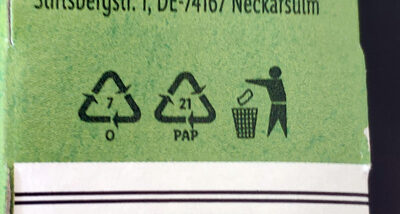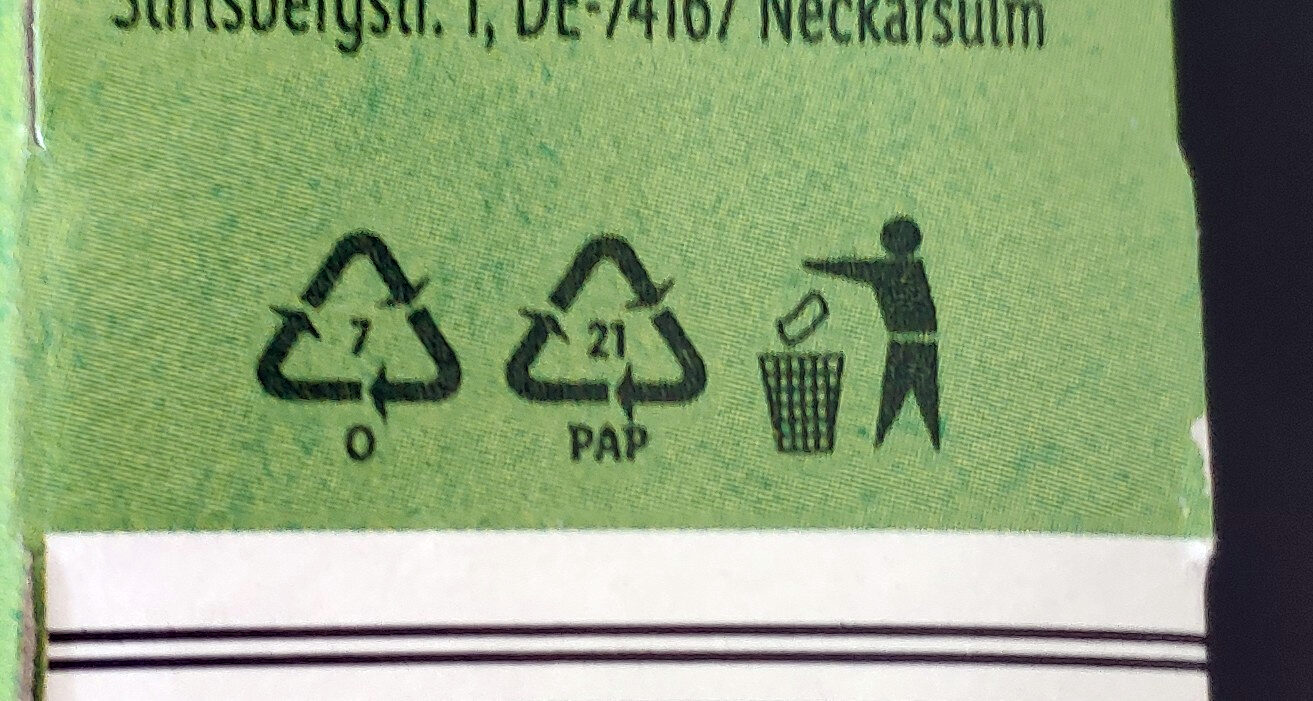Tofu basil - Vemondo - 180 g
This product page is not complete. You can help to complete it by editing it and adding more data from the photos we have, or by taking more photos using the app for Android or iPhone/iPad. Thank you!
×
Barcode: 4056489067788 (EAN / EAN-13)
Common name: Tofu with basil
Quantity: 180 g
Packaging: Plastic, Cardboard, Paper, Non-corrugated cardboard
Brands: Vemondo
Categories: Plant-based foods and beverages, Plant-based foods, Legumes and their products, Meat alternatives, Tofu
Labels, certifications, awards:
No gluten, Vegetarian, Vegan, European Vegetarian Union, European Vegetarian Union Vegan

Stores: Lidl
Countries where sold: Czech Republic, Italy, United Kingdom
Matching with your preferences
Report a problem
Data sources
Product added on by kiliweb
Last edit of product page on by roboto-app.
Product page also edited by alia, arc2, ecoscore-impact-estimator, foodvisor, inf, ligan, makuikui, moon-rabbit, openfoodfacts-contributors, packbot, risajanda, yuka.sY2b0xO6T85zoF3NwEKvlkIdY_3H-TieET3jnGeTlv3eMprIZPRv6KLwMKg, yuka.sY2b0xO6T85zoF3NwEKvlnQbWujFkGjaEg75mX-V-c2TA4SzStgp0NTgbqs.
